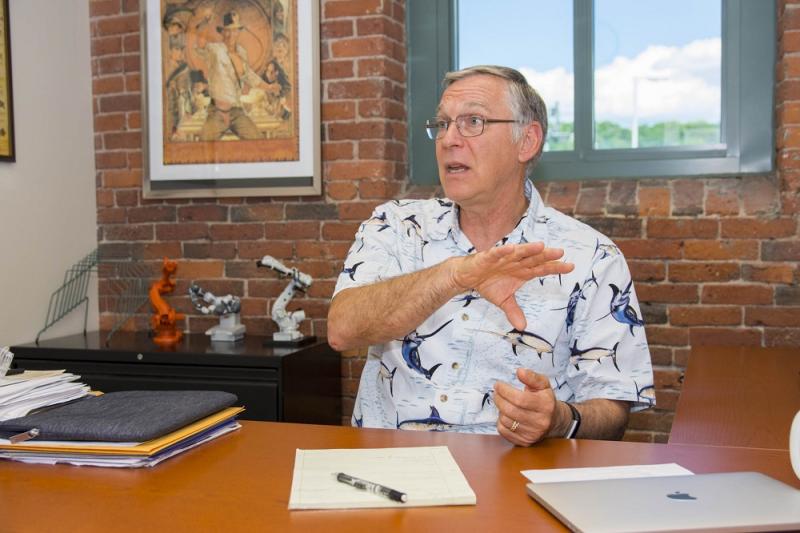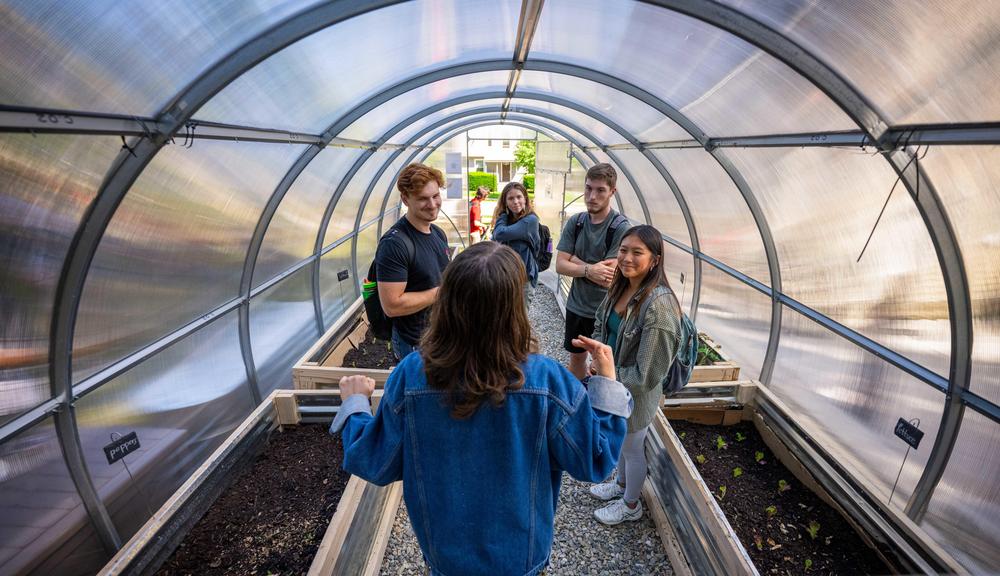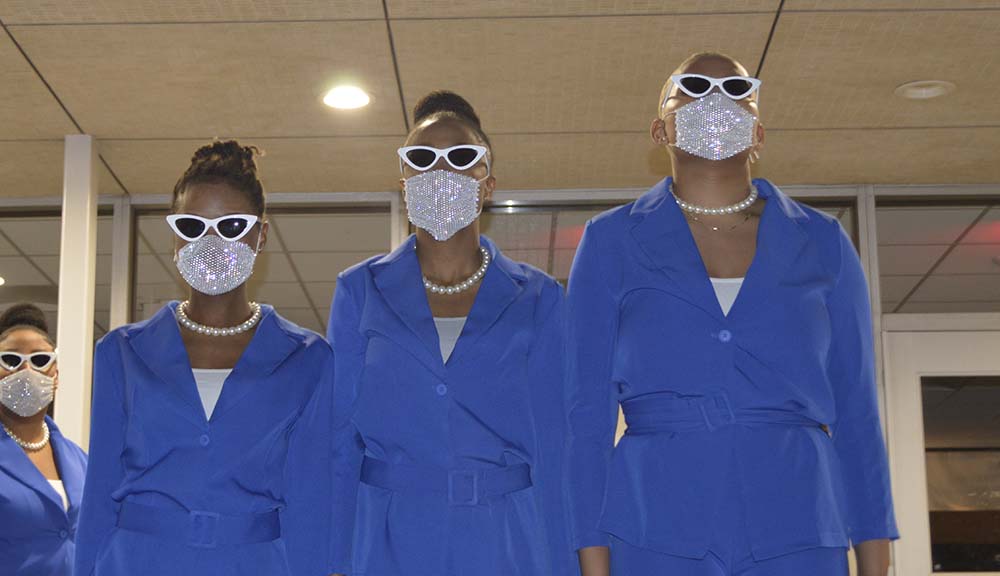When WPI started its robotics engineering (RBE) program 10 years ago, it had one robot, one lab, and one course, says Craig Putnam, associate director of RBE. A decade later, WPI’s success with its first-in-the-nation undergraduate program and its pioneering graduate program has established the institution as a leader in robotics education. Now, other schools are turning to WPI for advice on launching their own robotics programs to understand what makes the approach so successful.
From July 10 to 12, Putnam will be a guest of Beijing University of Chemical Technology (BUCT), where he will continue discussions about launching a robotics program that began when BUCT representatives visited WPI in spring 2016.

Craig Putnam
That visit was so helpful that BUCT invited Putnam to China for further in-depth discussions about WPI’s robotics engineering program—a match Putnam sees as a good step. “They want to start a program,” says Putnam, “and we are well-known at this point.”
As WPI’s RBE has grown and expanded, everyone involved has learned what works and what can be done better. Passing on that knowledge helps other schools in the short term and the larger industry in the long term.
Putnam isn’t sure exactly what the three days of open discussion will include, but he plans to be prepared for anything. Because BUCT and WPI are partners at the Beijing MQP Center, the representatives are familiar with how WPI works. Beijing MQP Center co-director and mechanical engineering professor Jianyu Liang will join Putnam for the discussions.
To explain the program, Putnam will give a broad view and some very specific details. “They need to understand the history of the program and how it is structured,” he says. Specifically, WPI’s robotics program started in reverse of the trend a decade ago, when only graduate robotics programs existed—and there were few of them. WPI launched its pioneering undergraduate degree and added graduate programs later.
In addition, WPI’s program is meticulous about instruction format, so the required courses act almost like a spiral of material, says Putnam. “We compare it to a three-legged stool,” he says. “There’s mechanical engineering, electrical and computer engineering, and computer science. All courses have that content, but the focus is different.” Because the undergraduate program offers a greater breadth of many subjects rather than depth in one subject, he says WPI has an implicit systems engineering component that ties the program together and must be explained.
“What I really value in WPI in general is how collegial it is. Everyone is respectful of each other and there aren’t a lot of turf issues in robotics because it’s so multidisciplinary. That’s unique.” -Craig Putnam
Putnam will also explain WPI’s system of multidisciplinary labs located across the campus that involve research and activities by students of all disciplines. With a WPI-specific approach to collaboration, Putnam is interested in seeing how his Beijing counterparts might incorporate that into their plans—or even if they can.
“What I really value in WPI in general is how collegial it is,” says Putnam. “Everyone is respectful of each other and there aren’t a lot of turf issues in robotics because it’s so multidisciplinary. That’s unique.” Other schools may not have the same multidisciplinary focus or might have semesters instead of seven-week terms and would need to have precise details on how those qualities make the program thrive. “It will be interesting to see how the WPI Plan works for them,” he says.
An Unexpected Side Trip
Since Putnam is taking the 17-hour direct flight from Boston to Beijing, he’s also using the opportunity to visit his younger sister, who lives in Malaysia. She has lived there for seven years, but he hasn’t been to visit yet. And although that trip is an additional six-hour flight, she reminded him that he was going to be “in the area” so he should take advantage of it.
But she neglected to mention a side trip she’d planned with her husband—tickets to the Rainforest World Music Festival in Borneo. With four words—“You’ll go, won’t you?”—his sister has added a little extra summer adventure to his trip.
While the trip will give Putnam a chance to go over the details of WPI’s thriving program (and possibly prepare for similar such requests in the future), he imagines hearing about another school’s approach will be invaluable. He says, “I think I will learn as much from them as they will learn from me.”
- By Julia Quinn-Szcesuil




